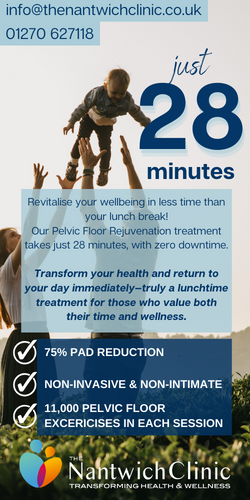
We’ve all been there – and for some of us, we are still there.
Losing weight is incredibly challenging, especially as we get older and our metabolism isn’t what it used to be.
It is a daily struggle – and keeping the weight off is a real challenge.
Many of us choose to exercise and work out to keep ourselves fit and healthy, and we also watch what we eat (with the occasional ‘cheat days’ to keep us sane!).
But if you want to be able to lose more weight – and, more importantly, keep it off – there are different ways to do so, and some of them don’t take too much effort, either.
Here’s how you can effectively lose weight, as told by the experts.
Set achievable and realistic objectives
Before you embark on any strict weight-loss journey, setting achievable and realistic goals is important.
For instance, it’s highly unlikely that you will be able to lose a significant amount of weight in a short period – and, more than this, attempting to do so can be detrimental to your health and well-being.
It’s better to lose, say, a kilo a week. It may not seem like much, but it adds up over time – and it’s a sustainable rate of weight loss that’s less likely to lead to rebound to weight gain.
Focus on your nutrition
One of the most important aspects of effective weight loss is nutrition. While exercise is indeed important for overall health and fitness, it’s difficult to ‘out-exercise’ a poor diet.
To lose weight, you must create a calorie deficit – meaning you have to consume calories that are less than what your body needs to maintain its weight.
You can achieve this by choosing healthier food options, reducing your portion sizes, and avoiding high-calorie and high-fat foods.
Here’s another tip: you can track your food intake using an app or journal.
With this, you can be more aware of your eating habits – and thus make healthier choices.
In addition, experts usually recommend focusing more on nutrient-dense foods low in calories but high in fibre and protein, such as fruits, vegetables, whole grains, healthy fats like nuts and seeds, and lean protein.
If you are serious about losing weight, you should also go to a doctor, because your doctor can give you the best nutritional advice and help you through your journey.
Nowadays, it’s entirely possible to consult with a doctor online, saving you from the hassle of getting to and from their office.
At sites like Anytimedoctor.co.uk, for instance, you can find a range of specialists to suit your needs.
Get moving
Of course, exercise is another important component of weight loss.
Not only does exercise burn calories – it can also improve your mood, boost your metabolism, and reduce your risk of chronic diseases.
Experts recommend aiming for a minimum of 150 minutes of moderate-intensity exercises a week, including cycling, brisk walking, or swimming.
In addition to structured exercises, you must also incorporate more movement into your daily routine.
You can, for instance, take the stairs instead of the lift, go for a walk during your lunch break, or do household chores such as gardening or vacuuming.
The truth is, the more active you are throughout the day, the more calories you will burn – and the easier it will be to create your calorie deficit.
Practice ‘mindful’ eating
Another strategy for effective weight loss is practising mindful eating. What does this mean?
It simply means paying attention to your body’s cues when it comes to hunger and fullness.
You should also be mindful of your emotions and other environmental factors that may influence your eating habits.
When you slow down and savour your food, you are less likely to overeat – and more likely to enjoy the food you eat.
(Image by Pixabay.com)

















Recent Comments